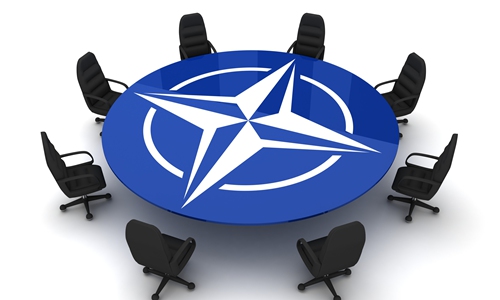HOME >> OPINION
Targeting China cannot save NATO
Source:Global Times Published: 2019/12/5 22:33:40

Photo: IC
After the North Atlantic Treaty Organization (NATO) Leaders Meeting ended in London on Wednesday, the leaders issued the London Declaration, in which it said, "China's growing influence and international policies present both opportunities and challenges that we need to address together as an Alliance." This is the first time that a NATO summit listed China as an independent topic and that China is involved in the joint declaration.The statement also said "NATO and Allies, within their respective authority, are committed to ensuring the security of our communications, including 5G, recognizing the need to rely on secure and resilient systems." It did not mention Huawei and the expression was vague.
Before the summit, NATO Secretary General Jens Stoltenberg told the media that China's rise is related with NATO members' security. He mentioned China's long-range missiles, China's presence in the Arctic and its infrastructural investment. "There's no way that NATO will move into the South China Sea but we have to address the fact that China is coming closer to us," he said, adding that NATO did not want to "create new adversaries."
Undoubtedly, China is not a threat to NATO members. European countries are actively developing cooperation with China. Some countries worry about China's expanding influence but their worries have nothing to do with traditional security. It is far-fetched for NATO, as a political and military alliance, to discuss China. The US is obviously the main promoter of such discussions.
NATO has lost its course since the end of the Cold War, and the disintegration of the Soviet Union and the dissolution of the Warsaw Pact.
The US wants to drag in NATO to oppose China, but this is against European countries' strategic interests in China. European countries have no motivation to help the US at the expense of their own interests.
Among traditional Western countries, Australia's policy toward China is the closest to the US. However, European countries' geopolitical mind-set is completely different from that of Australia, a country which is relatively alone in the ocean. Europe has the will to strengthen itself and it does not want to choose sides between China and the US. Germany and France have disputes with the US from time to time. They do not want to dwarf themselves.
In such a context, China can hardly be a strong reason to unify NATO. It's more likely that the China topic would result in more divisions within the group. The joint leaders' declaration on Wednesday acknowledged "opportunities and challenges" posed by China. The swaying statement can be seen as a result of compromise between some European countries and the US.
Ideology is the biggest bond between the US and Europe. Since Trump assumed office, there have been cracks in their common values. The two sides' common interests are being increasingly damaged and the traditional US-Europe relations are facing graver challenges.
China needs to firmly implement its opening-up policy, expanding economic cooperation with Europe and strengthening strategic communication with the EU and major European countries. In this case, it will become difficult for the US to rope Europe in to deal with China. If we could effectively reduce ideological frictions between China and Europe, the US will encounter greater difficulty drawing Europe over to its side to contain China.
Without common interests, NATO is destined to fail. It would be a serious blunder to regard the China topic as a ventilator for NATO to survive.
RELATED ARTICLES:
Posted in: EDITORIAL